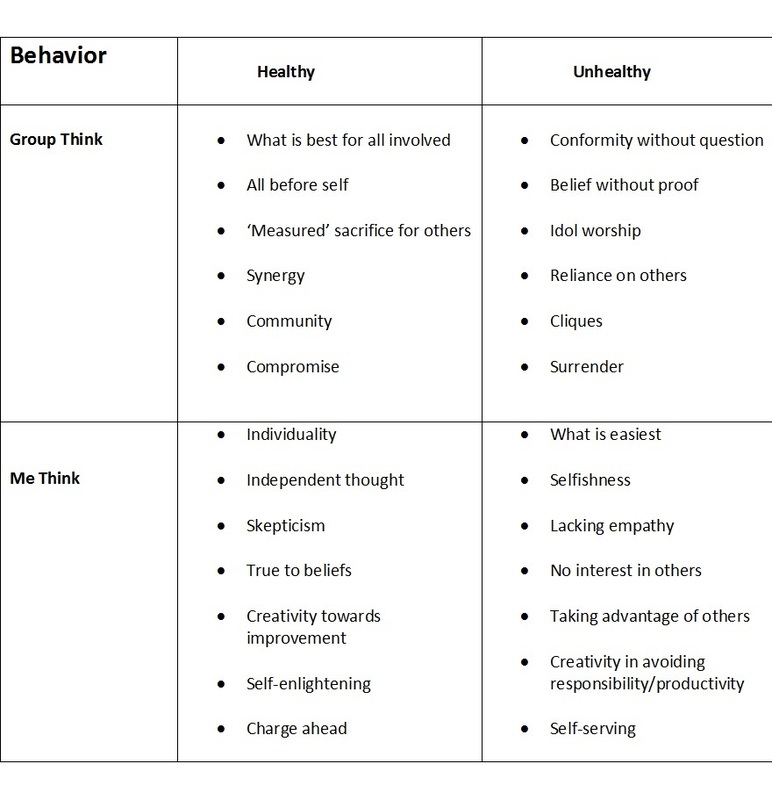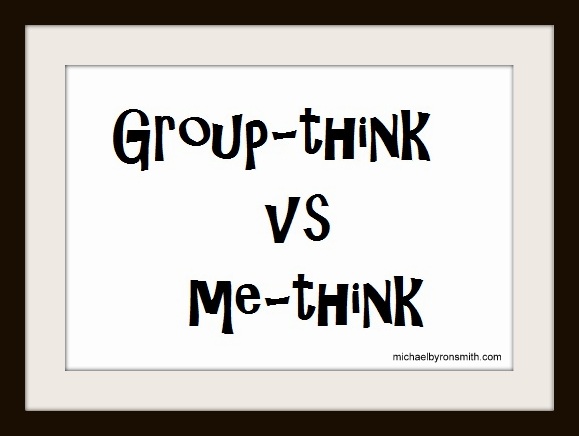
The question is why and/or when are people, 1) selfish or generous, 2) obstinate or cooperative, 3) failures or successes? Also, why does behavior that brings success to one result in the failure of another. It may depend on one’s definition of success.
Below is a chart of behavior comparing behavior with outcomes as it relates to thinking as a group or thinking for one’s self.
In which quadrant(s) are successful leaders?
In which quadrant(s) are followers?
In which quadrant(s) are gang members?
In which quadrant(s) are narcissists?
In which quadrant(s) are favorite politicians?
In which quadrant(s) are politicians you don’t care for?
In which quadrant(s) are clergy?
In which quadrant(s) are cult followers?
In which quadrant(s) are entrepreneurs?
In which quadrant(s) are criminals?
In which quadrant(s) would you guide someone to improve their situation?
In which quadrant(s) would you help a community improve?
In which column do people thrive?
In which column do people not thrive?
Is group think always good or bad?
Is me-think always good or bad?
In which quadrant(s) are people you like?
In which quadrant(s) are people you avoid?
In which quadrant(s) are your children?
In which quadrant(s) is your spouse?
In which quadrant(s) are you!
Summary
Some of these questions are obviously easy to answer. Some are more difficult. Those are the questions that address those people closest to our personal life. That may be due to the fact that our emotions can block the truth. It also important to know when to switch from 'group-think' to 'me-think' or vice versa.
It seems there are cycles when children are taught they are special, even over others, and cycles where they are herded to all think alike. It is critical that when either of these teachings are happening that the quadrants and questions above are kept in mind. As a parent who raises and mentors children, this will help you make better decisions, not only in your household, but in those groups in which your children are involved.






